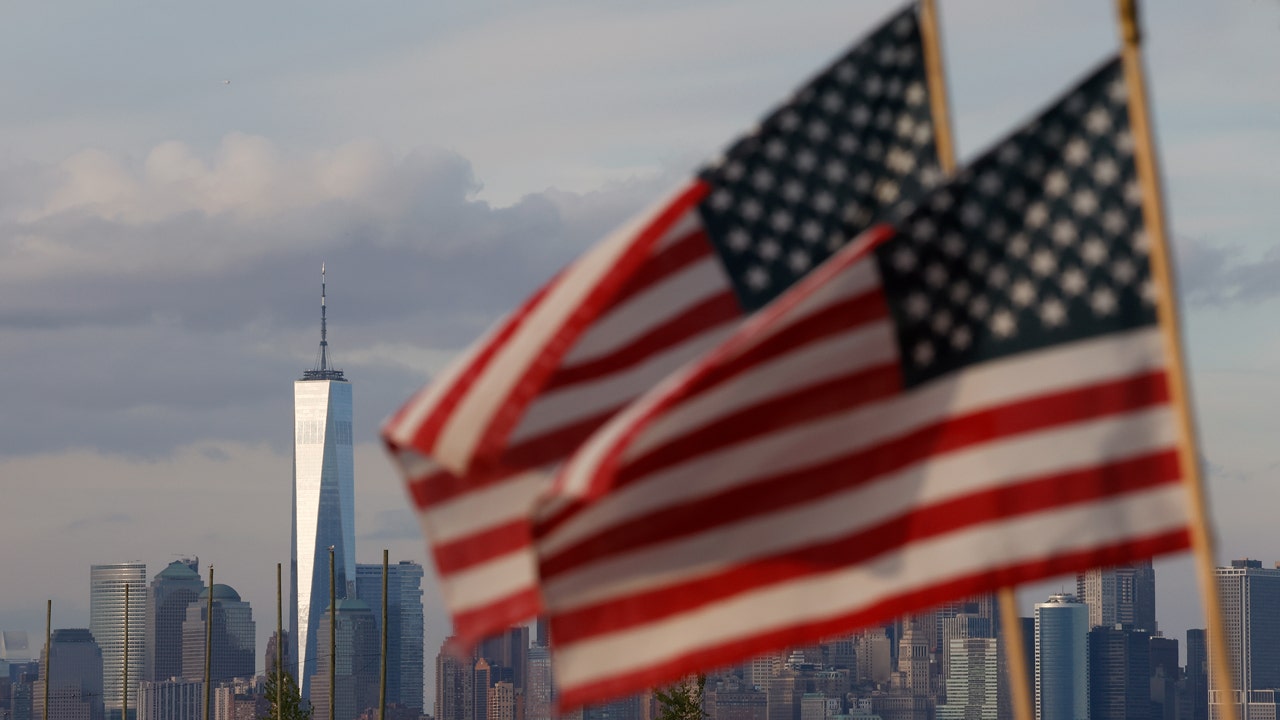Christopher Hitchens once described participation in the absurd debate over who actually wrote Shakespeare’s plays as “an unfailing sign of advanced intellectual and mental prostration.” It would be unsporting to apply this characterization of literary conspiracy theorists to the enthusiastic followers of Donald Trump’s criminal trial in New York, but only, I think, because the verdict in the latter case is still an open question.
For the uninitiated (a category to which a great majority of voters belong), the most immediately striking feature of both Shakespeare denialism and the Trump trial is impenetrability: endless rolls of decontextualized names and dates; speculative chronologies; inconsequential or irrelevant details invested with a lurid significance; complex, novel theories of evidence that are somehow applicable only to one individual.
How many people, even those who purport to be following the case against Mr. Trump, can summarize the premise on which the Manhattan district attorney, Alvin Bragg, has based his claim that various alleged low-level bookkeeping offenses somehow congeal into a felony, much less explain why Mr. Trump is the only person of note whose ostensible accounting errors are treated like this? You might as well buttonhole audience members at Shakespeare in the Park and ask them to explain the hidden political affinities, legal allusions and cryptographic clues that point to Francis Bacon as the real author of “As You Like It.”
But there is a more important reason that so many Americans have taken so little interest in this criminal proceeding. People recognize, at least implicitly, that the trial is in effect an attempt to settle an issue that courts are poorly suited to decide: namely, whether Mr. Trump should again be elected president of the United States. That, as they say, is a question for another day, specifically Nov. 5.
The most obvious antecedents for the current prosecution of Mr. Trump date from his time in the White House: the two impeachments; the wide-ranging investigation of Russian “collusion” that consumed roughly half of his term; the speculation about violations of the Logan Act and the emoluments clause; and the suggestion that he be removed from office under the dubious terms of the 25th Amendment. Whatever their merits, these efforts were all, in their animating spirit, partisan attempts to negate the outcome of the 2016 presidential election — or, failing that, to circumscribe Mr. Trump’s ability to exercise the authority of the office he had (as his opponents saw it) illegitimately obtained.
Any criminal conviction that results from Mr. Bragg’s indictment would not disqualify Mr. Trump from seeking office. But it cannot have been absent from the prosecution’s calculations that a conviction might not help his cause.
Such gamesmanship is not new. At least since the Clinton administration, both Democrats and Republicans have frequently operated according to the assumption that the business of political opposition can and should be subsumed into the legalistic procedural machinery of special counsel investigations, congressional hearings and impeachment. Bill Clinton had the Monica Lewinsky scandal. George W. Bush had the Valerie Plame affair. Barack Obama was subjected to a never-ending series of showboating inquiries in which his Republican opponents frequently asserted that he could be charged with high crimes and misdemeanors.
It was just a matter of time before such battles continued after a president left office, when prosecution can take place in criminal courts. That prosecutions of former heads of state may become an unremarkable feature of our public life is a gloomy prospect, but it seems an inexorable consequence of the same partisan logic that has led to the use of impeachment and Congress’s subpoena power as political weapons.
During Mr. Trump’s presidential campaign in 2016, he was asked repeatedly whether he would accept the results of the election. (The same question was seldom put to Hillary Clinton, though she would later characterize the 2016 election as “stolen” and describe Mr. Trump as an “illegitimate” president.) His refusal to answer affirmatively was widely taken as evidence of his status as a would-be usurper. Perhaps it was. But Mr. Trump, wittingly or otherwise, was also capturing a widely shared sense of resignation in this country: that at least since Bush v. Gore, election results are always provisional, that for the losing side there will always be some recourse to extra-electoral means of disputing their outcome — whether judicial or simply rhetorical — and that these resources can supply the material for an entire subsequent election campaign.
It seems as if no one any longer “accepts” the outcome of an election if he disagrees with it. An unwelcome result becomes ipso facto evidence of some devious attempt to upend the foundations of “our democracy,” one to which the proper response is not running a better campaign next time but trying to use whatever legal weapons are available to force the victor outside the political realm entirely, or at least to render him powerless within it. The defense attorney Carl Douglas, in another context, once referred to this kind of thing as “the fifth quarter.” When a high school football team loses after four quarters of play, it can still “win” — in a parking lot brawl after the game.
Mr. Bragg has accused Mr. Trump of “conspiring to corrupt a presidential election.” In this case, that is a tautology. All elections are “corrupt” in the sense of being unavoidably tainted by unlikable personalities, moral failings, dubious coalitions, venal motivations, unlovely compromises and the other thousand natural shocks that flesh is heir to.
This is not to suggest that former presidents are or should be immune from criminal prosecution. In the case of Mr. Trump’s hypothetical example from 2016 of his shooting someone on Fifth Avenue, one would hope that he would stand to lose more than votes. But this is part of the problem with Mr. Bragg’s endeavor: Its spuriousness will almost certainly undermine other, more credible efforts to prosecute Mr. Trump. The criminal charges he faces in Georgia, for example, are better established and more serious, but they are unlikely to be seen as such by voters for whom the sheer cumulative weight of the various indictments — there are two others, in Washington and Florida — has a leveling effect. Because prosecutions of politicians are, by definition, political affairs, their legitimacy is always open to question, especially when viewed in their broader partisan context.
Pretending that Mr. Trump’s worthiness to serve a second term is a matter of criminal law rather than a political question is typical of our American insistence upon using certain tools (judicial originalism, democracy promotion, tax credits) for purposes to which they are fundamentally unsuited (outlawing abortion, defeating Islamic terrorism, increasing the birthrate). Most of the time we misuse these tools in the hope of addressing problems that do not admit of any easy or obvious solution.
That is not the case here. The question of Mr. Trump’s fitness to serve as our commander in chief is one that voters are readily able to answer.






